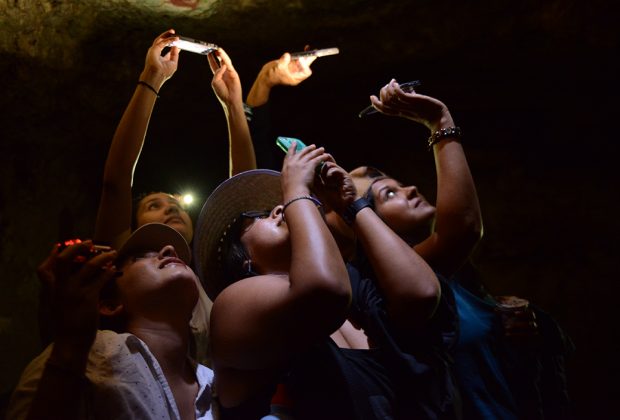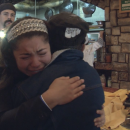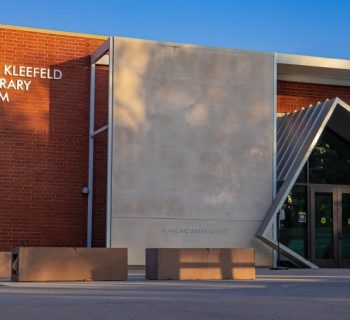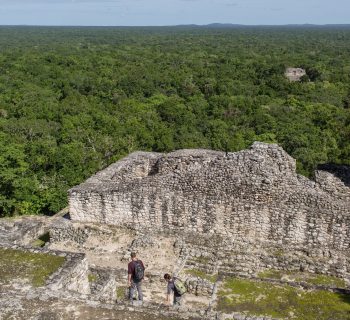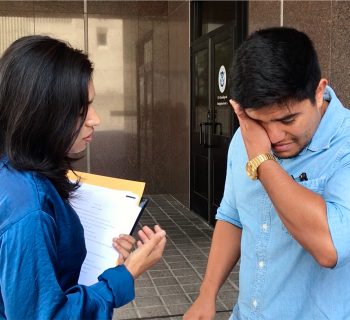By: Elizabeth Campos, CMSC News - May 10, 2016
The topic of immigration is an everlasting conversation both inside and outside the senate. For politicians, this discussion is part of their job. For undocumented students, it’s a whole different situation.
Cal State Long Beach professor Armando Vazquez-Ramos, upon finding of the possibilities which Advance Parole provides, decided to take a couple of his undocumented students with DACA status to Mexico to reconnect with their roots and place of origin.
Vazquez-Ramos’ California-Mexico Study Abroad program consists of a study abroad opportunity that allows undocumented students to go to Mexico. Upon arrival, the students have time to go visit their family members in various states of the country.
In addition, the students are also immersed in the education system of the country, as well as the culture, by attending a progressive Spanish speaking school named CETLALIC.
The first two students who had the opportunity to leave the country with advance parole, Jaime Jorge and Ana Ramon were part of professor Vazquez-Ramos’ California-Mexico Policy and Higher Education Experience course in the Chicano/Latino Studies program at Cal State Long Beach. This first trip was the initial step for the domino effect the program created.
Following the positive outcome of this, Vazquez-Ramos took this out-of-the-box idea to meetings with FUEL (Future Underrepresented Educated Leaders), an organization on the Cal State Long Beach campus that aims to advocate and empower undocumented students. In addition, the idea was also presented to students in the Chicano/Latino Studies department.
The word spread among students, particularly those identified as Dreamers. Dreamers are immigrants under the age of 31 that entered the United States before the age of 16.
Other characteristics that qualify young immigrants as Dreamers are to have lived continuously in the U.S for five years, have no criminal convictions, and are currently in school, graduated from high school, earned a GED (General Educational Development) or served the military.
According to the American Immigration Council, there are approximately 1.4 million immigrants in the U.S. that may qualify, or are already qualified as Dreamers.
Dreamers fall in the wings of an immigration policy that is currently in limbo: DACA. Differed Action for Childhood Arrivals is a policy that allows Dreamers to receive a two-year work permit and exemption for deportation.

Alex Holguin, immigration attorney for Dream Act Lawyers in Los Angeles, says that when DACA emerged in 2012, people were scared of providing their information because of it being an executive order rather than a law.
Now, however, people have seen the potential and empowerment that this immigration policy gives to Dreamers.
The students that, under professor Vazquez-Ramos’ program were able to visit Mexico after years of leaving the country, range from different career paths such as sociology, design, anthropology, film and more.
Lidieth Arevalo, 24 year old film graduate from Cal State University Long Beach, was one of the students that flew from Los Angeles to Mexico City.
What differentiates Arevalo from the rest of the Dreamers though, is that she is Salvadoran.
Arevalo left El Salvador 11 years ago, being conscious of the migration she was taking part of. Because of this, she understands and identifies with the Salvadorian culture.
Through the California-Mexico Study Abroad program, Arevalo had the chance to visit Mexico as well as visiting El Salvador.
Arevalo explains that upon arrival in Mexico City's international airport, she had complications going passing through immigration since she, unlike the rest of students, was not a Mexican citizen. Not having a green card and Mexican immigration officers not understanding neither the advanced parole permit nor DACA, put Arevalo in the situation that undocumented people fear the most.
“Are they going to tell me to go back to the U.S. or to El Salvador? I didn’t know, so I was freaking out!,” she says.
Based on the struggles that the students faced, including Arevalo, it can be noticed that officers from both borders are not always well aware of the immigration policies that are being implemented.
“I think the U.S. makes Mexico stop as many Central Americans [as they can] to come to the U.S,” she says as she too explains that going from El Salvador to Mexico was easier.
Arevalo is also the creator of the documentary “Sin Raiz.” This documentary is a closer look into the experiences that the Dreamers from the Spring 2015 program lived while in Mexico.
Tears, smiles and camaraderie can be seen in the documentary as students bond over the various situations they encountered.
One of the feelings that the students shared was the fear of the possibility of not being allowed back in the country, even with advance parole.
The advance parole is a permission for certain undocumented individuals that allows them to re-enter the United States after traveling abroad. The re-entry to the country, however, is not guaranteed.
“The only issue I’ve seen, generally, is if someone who’s been granted advance parole had a removal order in the past,” said Holguin in regards to how the document works.
This fear is something that for students like Sandra Lopez, made her think ahead and plan for a “what if” situation. Lopez explained that her plan, if not allowed to enter back in to the U.S., was to take classes online so that she could continue the education she started.
Moreover, another feeling that Lopez and other students shared is that of being “ni de aqui, ni de allá.” This saying translates as “Neither from here, nor from there,” and it expresses the struggles and difficulties of being born in a country in which you no longer live, as well as living in a country in which you weren’t born.
“When I'm in the U.S. people tell me I have the Mexican accent, and when I went to Mexico, they told me I have the ‘gringa’ accent. Where am I from?,” says Lopez, “You know what? I’m from both places.”
Students who went abroad and came back see the experience as one where they, in Lopez’s words, “gain back identity.”
Regardless of advance parole, re-entering the U.S. is not entirely guaranteed. The students who took on this gamble are interested and willing to reconnect with their roots as well as pay it forward in their community.
This program, along with DACA, allows students to do so much more than hide in the shadows of an illegal status.
“Before DACA you were unable to grow to your full potential,” said Vazquez-Ramos as he expresses his ideas and passion about the program and his students.
Gaby Hernandez, 26 year old anthropology major and recent applicant to the California-Mexico Study Abroad program, describes it [program] as “one of the best opportunities that DACA gives Dreamers.”
For Hernandez, DACA gave her a sense of security. Living in San Diego and having to cross check points to come to Long Beach made her think of what questions she would be asked if stopped.
“It made me really happy because you can finally stop hiding and come out for a better job or better school.”
This upcoming summer, Dr. Alfredo Carlos, political science and Chicano Latino Studies professor at Cal State Long Beach will be accompanying students in their experience.
Carlos expresses being honored for the opportunity as it shows the trust that its given to him. As an immigrant himself, he relates to the struggles that students go through as undocumented, and while the experiences weren’t entirely similar, he says “I could’ve been one of them.”
“I feel empowered by them,” Carlos says as he expresses the admiration for what the students do regardless of their status. “They become more involved and better citizens than citizens.”
In regards to the current presidential candidates and the situations that have risen from that, Vazquez-Ramos, Carlos, and Holguin all think that Trump’s plans aren’t realistic and that he won’t succeed.
Many Latinos have taken the time to register to vote before elections in order to prevent Trump and his plans of building a wall and getting rid of DACA and what has been done so far with DAPA.
Latinos are the “sleeping giant,” says Carlos. Many Latinos, such as Dreamers, do not have the opportunity to vote.
With Vazquez-Ramos’ program, however, they do have the opportunity to reconnect to all the history that lies beneath them.
For more info connect with us on social media:

